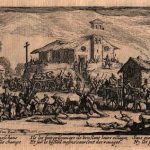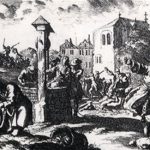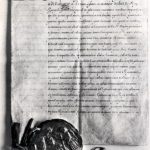1621

Resumption of the Wars of Religion under Louis XIII
After the death of Henry IV, a new dispute arose concerning the religious and political organization of the Béarn, the king’s personal property. In 1616, things deteriorated. Three new religious wars broke out and ended in 1629 with the Peace of Alès.
Article : The last religious wars (1621-1629)
1627

Siege of La Rochelle
This very busy port, which had become largely Protestant, represented a potential threat to the royal power and Richelieu due to the risk of an English landing. Richelieu laid siege to it in 1627. The city of La Rochelle surrendered in 1628, after a heroic resistance.
Article : The last religious wars (1621-1629)
1629

Peace of Alès
After three religious wars, the peace of Alais deprived Protestants of safe havens, but confirmed their right to practice their religion within the framework of the Edict of Nantes.
Article : The last religious wars (1621-1629)
1648

Treaty of Westphalia
The Thirty Years War was a political and religious war that devastated the Holy Roman Empire of the German nation in the 17th century. First a religious conflict between the Protestant princes and the Catholic house of Hapsburg, it degenerated into a European war due to the intervention of the foreign powers, Sweden and France. The Treaty of Westphalia put an end to it in 1648, mainly to the benefit of Sweden and France.
Article : The Thirty Year War (1618-1648)
1681

First dragonnade in Poitou
Louvois sent a cavalry regiment to Poitou to go into winter quarters. The Kings quarter master, Marcillac, housed them in Huguenot homes: he allowed them to pillage and ruin their hosts if they did not wish to convert. Recalcitrants were ill-treated and even tortured. A wave of conversions followed. This first dragonnade was the prelude to the general dragonnade of 1685 in the southern Loire, which was followed shortly after by the Revocation of the Edict of Nantes.
Article : The “Dragonnades” (1681-1685)
1685

Revocation of the Edict of Nantes
Decided by Louis XIV, this revocation on October 22, 1685 led to the increased repression of Protestants (death sentences and sentences to row the galleys, forced conversion, etc.). It amplified the emigration of French Protestants to the so-called Refuge countries of Europe (Prussia, England, Switzerland, the Netherlands).
Article : The Edict of Fontainebleau or the Revocation (1685)
